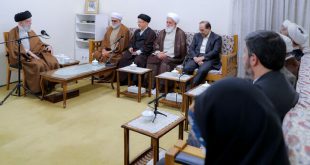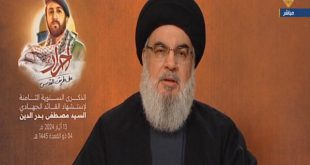Iran will keep the UN nuclear agency’s cameras turned off until a 2015 nuclear deal is restored, the head of the country’s atomic energy organization said on Monday.
Iran informed the International Atomic Energy Agency (IAEA) it had removed IAEA equipment, including a number cameras installed voluntarily after the agency passed a U.S.-drafted resolution against Tehran in June.
“We will not turn on the IAEA cameras until the other side returns to the nuclear deal,” Iranian nuclear chief Muhammad Eslami said.
The IAEA cameras, he said, were meant to put an end to Western accusations. “If those accusations are going to remain in place, there is no more need for the existence of JCPOA cameras,” he said.
Eslami also criticized certain allegations against Iran’s nuclear program, emphasizing that “Tehran has never engaged in any covert and enrichment activities outside the framework of the JCPOA and without coordination with the IAEA.
Iran’s measures to produce heavy water or develop other sections of the country’s nuclear industry infrastructure have been carried out in coordination with the IAEA and are currently under the agency’s supervision, Eslami said.
“No one should have the wrong impression that the IAEA does not currently supervise Iran’s nuclear activities. The IAEA is … conducting its supervision according to the Safeguards Agreement,” the Iranian nuclear chief pointed out.
He said Tehran will make new decisions if the parties to the deal return to their obligations as per the JCPOA and assure Iran that the West would not carry out any mischievous act any more.
Foreign Ministry spokesman Nasser Kanani accused IAEA Chief Rafael Grossi of having “unprofessional, unfair and unconstructive views” on Tehran’s nuclear program.
Iran’s nuclear program is “galloping ahead” and the IAEA has very limited visibility on what is happening, Grossi told Spain’s El Pais newspaper in an interview published on Friday.
Kanani said, “The Islamic Republic of Iran is a member of the International Atomic Energy Agency and the Non-Proliferation Treaty (NPT), and for many years, especially during recent years, has allowed the agency’s inspectors all out of an interactive and constructive stance to visit facilities in question several times.”
“Most of the missions of the IAEA’s inspectors are related to Iran’s nuclear sites. This interactive and voluntary approach was meant to resolve the sticking point that previously existed and we thought
could impede the achievement of an agreement. Unfortunately, Iran’s constructive actions have not been met with a constructive and mutual response on the part of the IAEA and its director general,” he said.
“Unfortunately, Mr. Grossi has time and again taken an unprofessional and unfair approach vis-à-vis Iran’s nuclear program, especially in recent months. His views are not helpful and constructive. He is interested in raising an issue about Iran’s nuclear issues now and then. We believe that the IAEA director general should adopt a constructive and interactive approach in response to Iran’s constructive cooperation with the agency. We do not view Grossi’s remarks as technical and professional and we advise him to observe the principle of neutrality and fairness and to avoid politically-motivated statements.”
 صراط عشق صراط عشق
صراط عشق صراط عشق




